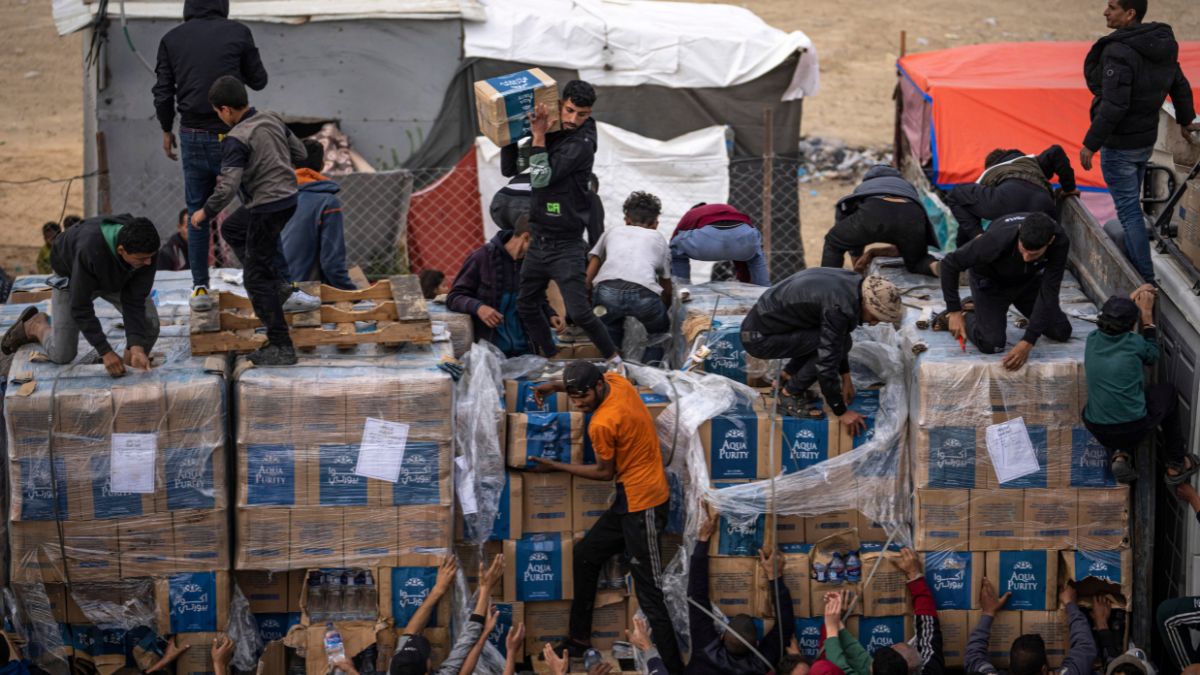Several Arab nations and the United Nations have condemned Israel’s decision to block the entry of all humanitarian aid into the Gaza Strip as hopes of the continuation of the ceasefire start to fade. On Sunday, Egypt and Qatar said that the Israeli move violated the ceasefire deal, while the UN humanitarian chief Tom Fletcher referred to the blockade as “alarming”.
Meanwhile, Israel’s Prime Minister Benjamin Netanyahu said that the country decided to block the entry of the aid because Hamas was stealing the supplies and using them “to finance its terror machine”. He went on to accuse the Palestinian group of rejecting the proposal pushed by the US to extend the first phase of the Gaza ceasefire, which expired on Saturday.
Hamas’ spokesperson, on the other hand, argued that Israel’s blockade was “cheap blackmail” and a “coup” against the ceasefire agreement, BBC reported. The recent ceasefire deal halted 15 months of fighting between Hamas and the Israeli military, allowing the release of 33 Israeli hostages for about 1,900 Palestinian prisoners and detainees.
Condemnation pours in
In a statement on Sunday, Qatar’s foreign ministry said it “strongly condemns” the Israeli decision, describing it as “a clear violation of the ceasefire agreement” and “international humanitarian law”. The Egyptian foreign ministry went on to accuse Israel of using starvation as “a weapon against the Palestinian people,” AFP reported.
Both Qatar and Egypt have been the key players in mediating the ceasefire agreement in Gaza. The two were not the only Arab nations that condemned the Israeli move. Saudi Arabia, on Sunday, expressed its “condemnation and denunciation” of the Israeli aid blockade, the foreign ministry said.
Meanwhile, UN Under-Secretary-General for Humanitarian Affairs, Tom Fletcher, took to X, formerly known as Twitter, to raise concern over the issue at hand. “International humanitarian law is clear: We must be allowed access to deliver vital lifesaving aid,” he said. Netanyahu and Israel collectively defended themselves, saying that it decided to act “because Hamas steals the supplies and prevents the people of Gaza from getting them.”
“It uses these supplies to finance its terror machine, which is aimed directly at Israel and our civilians, and this we cannot accept,” the Israeli premier averred. Hamas has frequently denied stealing humanitarian aid in Gaza. Amidst all this, negotiations are underway on phase two of the ceasefire. However, the talks have barely begun.
Impact Shorts
More ShortsPhase two would entail a permanent ceasefire, which would lead to the release of all remaining living hostages and the withdrawal of Israeli forces from Gaza. It was due to have started soon after the end of the first phase of the ceasefire. Currently, there are around 24 hostages alive, with another 39 presumed to be dead.
Phase three of the ceasefire deal is supposed to lead to the return of all the remaining bodies of the Israeli hostages along with the reconstruction of Gaza, which is expected to take years. Hamas has maintained that it would not agree to any extension of phase one without some sort of guarantee from the mediators that phase two of the ceasefire would eventually take place.
With inputs from agencies.
)